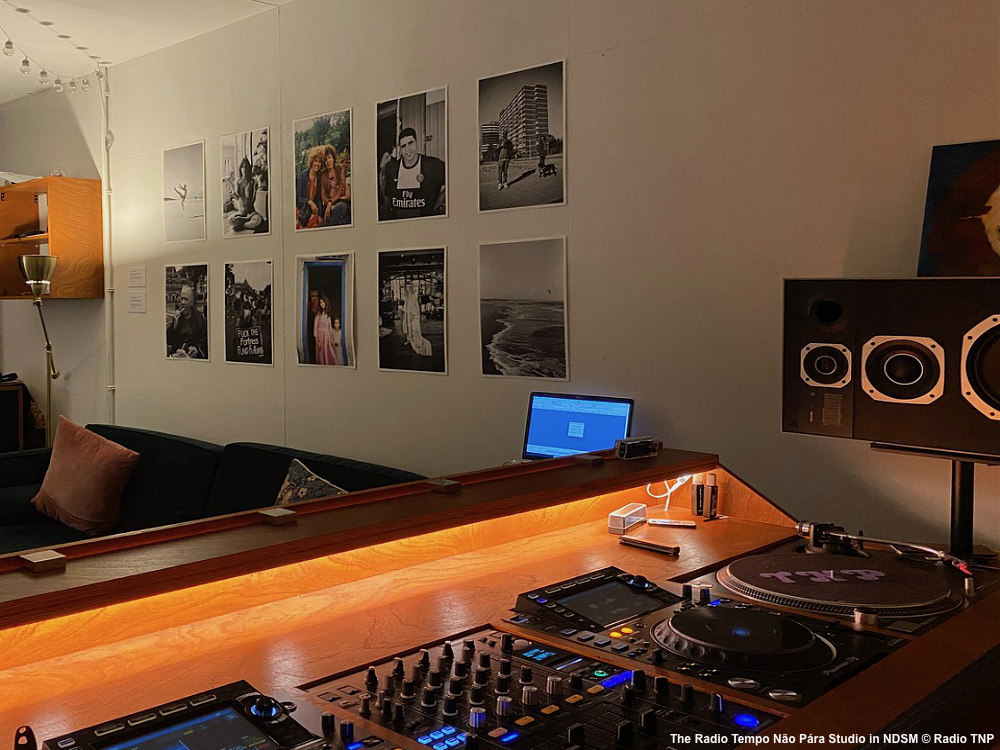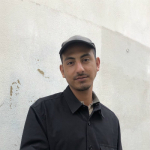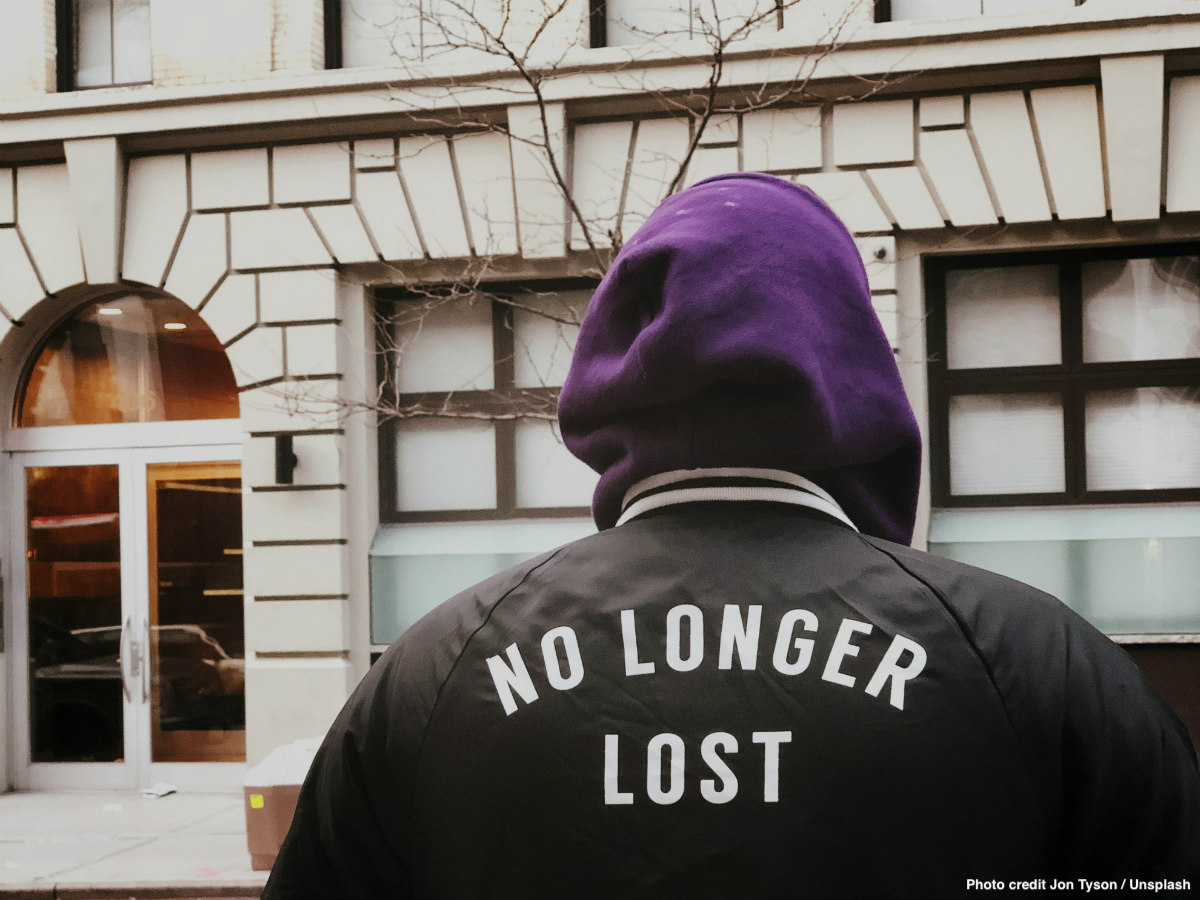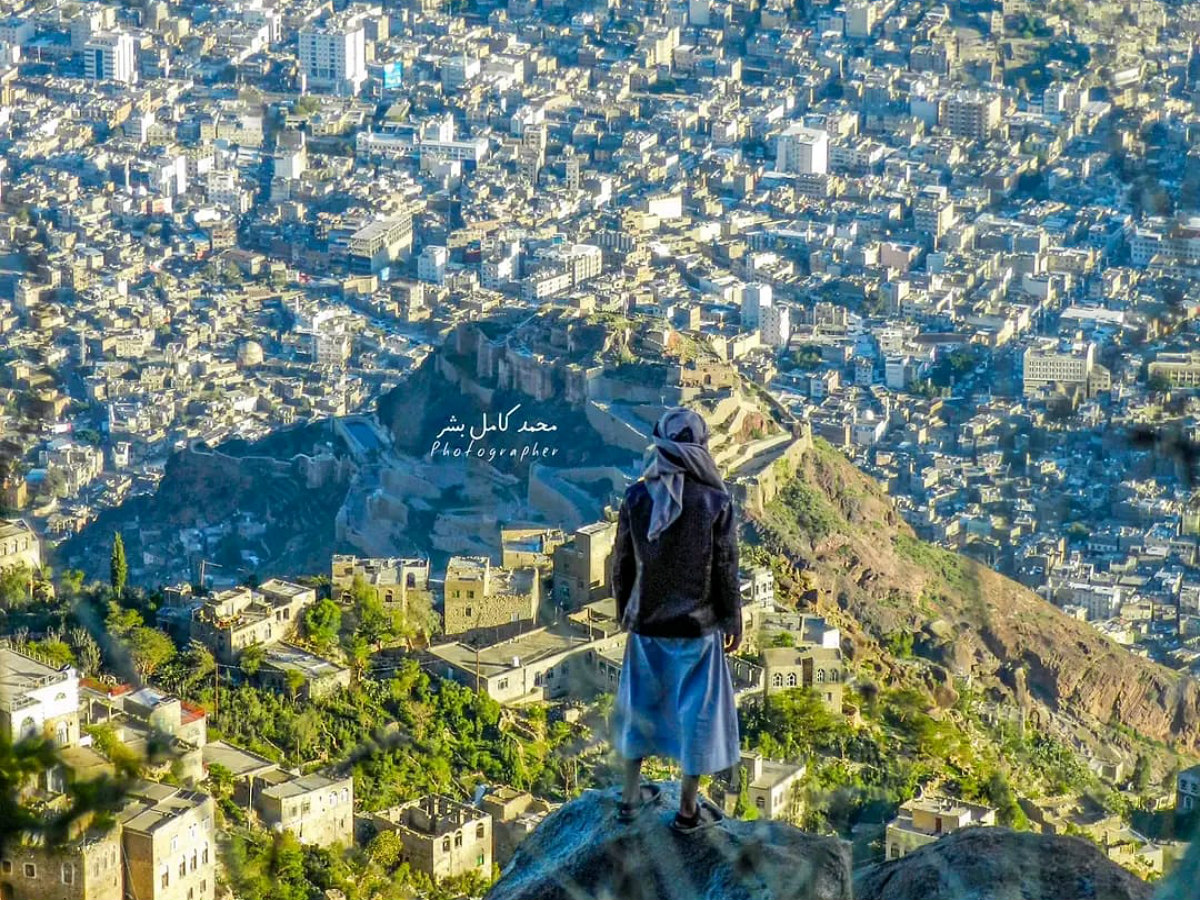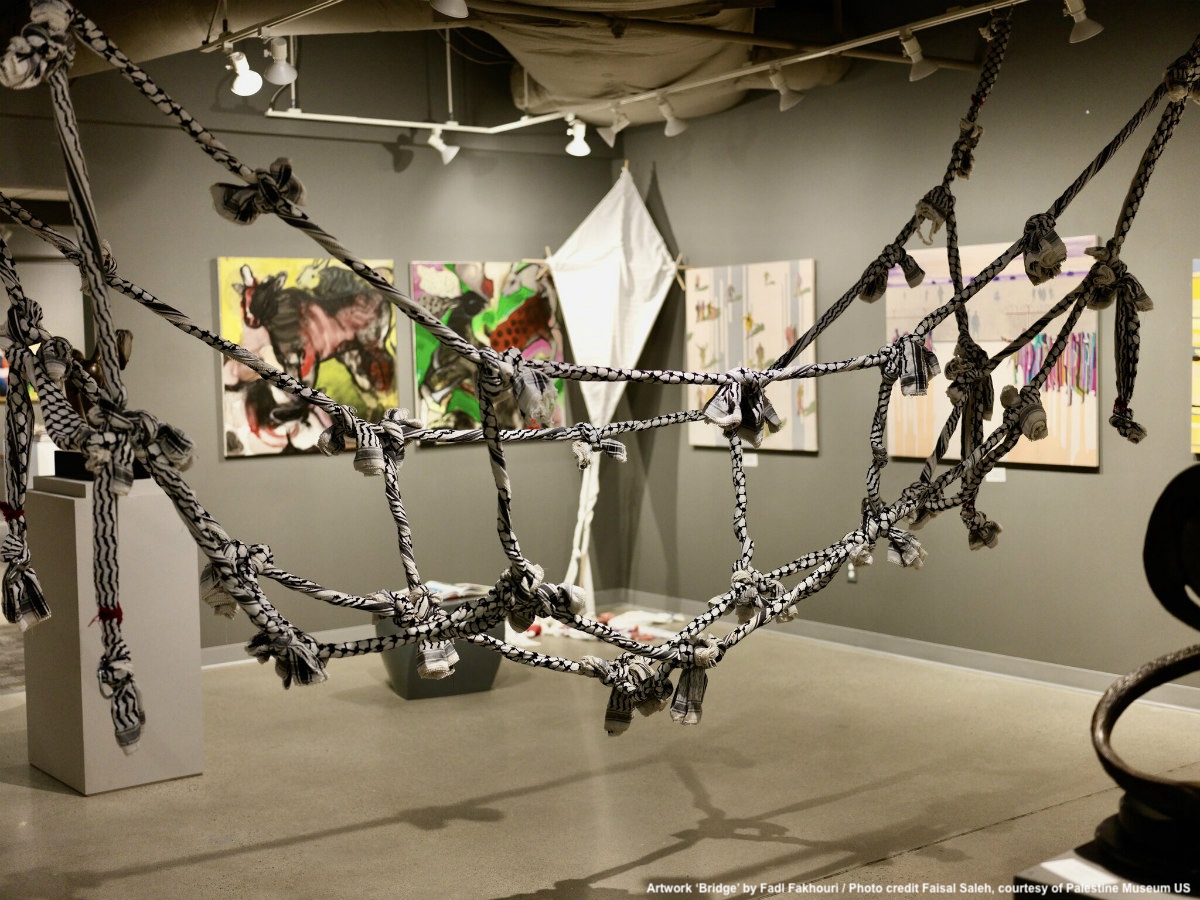On any given day of the week, from the early hours of the day until late in the evening, a myriad of online, community radio stations in cities around the world hum with activity. They host a carefully orchestrated flow of artists, DJs, community leaders and researchers in their studios, broadcasting eclectic sounds and stories that transcend the constraints of traditional FM radio.
In an age of endless algorithmic recommendation, these independent online radio stations provide non-commercial spontaneity, discovery, escapism and a comforting sense of community, where artists, researchers and enthusiasts can find each other while navigating through their daily lives. Most of these radio stations are nonprofit and community-funded. Run by musicians, filmmakers, students, writers and DJs, often operating voluntarily, they work tirelessly to promote local artists, bring people together, exchange ideas and share knowledge around music and social topics, and provide quasi-continuous access to musical and intellectual discovery.
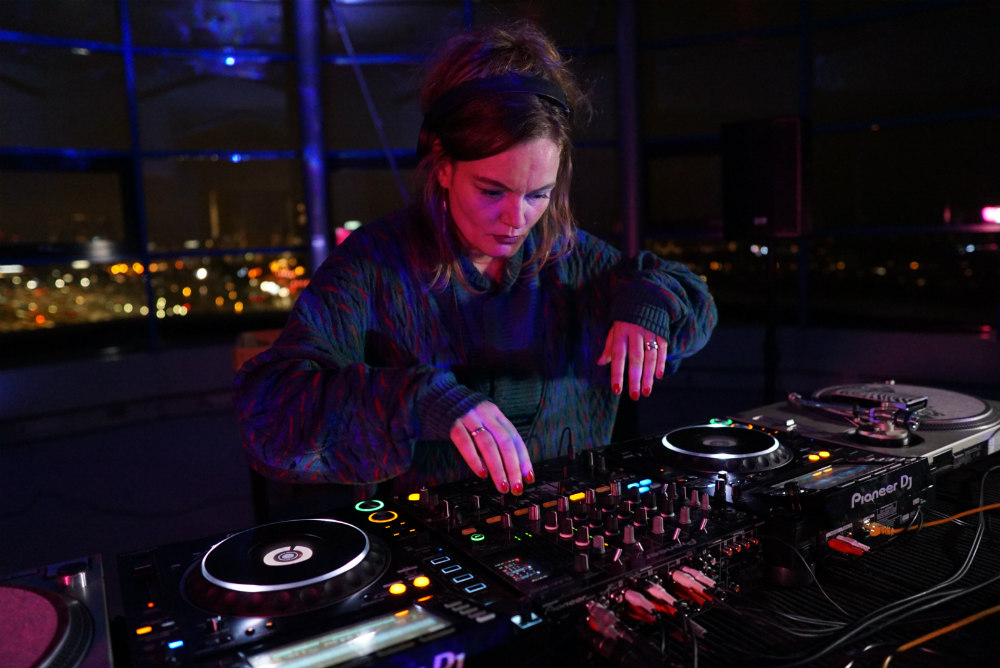
As cities shut down due to the pandemic, local online radios united these creative communities like never before. In Amsterdam, these platforms are widespread, and go above and beyond digital community building. They shape the urban cultural landscape through countless offline events, and their pursuit to identify and nurture new talent. They support creative encounters with connection between artists, bookers, and listeners alike around both those online and offline spaces.
Radio Tempo Não Pára (Time Doesn’t Stop) is one such community radio station, which puts on a series of offline events across Amsterdam. “For us, the goal was never to become a big radio station,” radio’s co-founder Ozzy Ulger chuckles, “it was really about bringing people together and surprising them with new sounds”. Therefore, venues for their events can be unexpected, like during Emotional Audiovisual Retail, an event held in a popular Turkish supermarket in the Oost Neighbourhood of Amsterdam to reach a more diverse audience.
Choosing such a place, where all types of people gather for a common activity, facilitates interaction between social groups that are not accustomed to engaging with each other, Ulger explains. Broadcasting from the decommissioned NDSM shipyard located on the banks of the River IJ in Amsterdam Noord, the activities of Tempo Não Pára have a strong societal character to promote unity, diversity, mutual understanding and creativity in Amsterdam, essential aspects of collective city life.
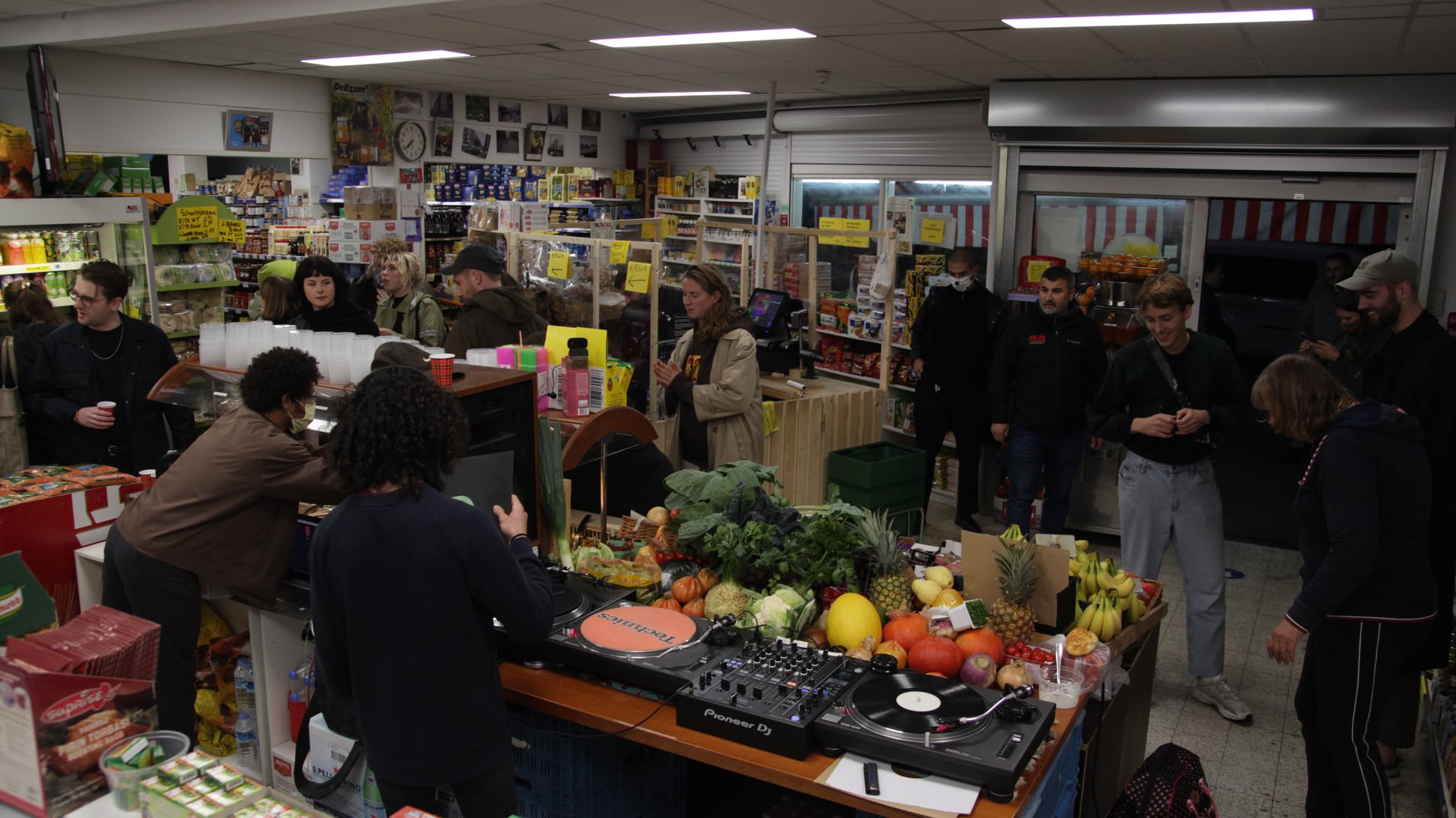
Their events are promoted in multiple languages, and are intentional about cultivating multicultural communities. “We focused on the seven biggest non-western immigrant groups in Amsterdam and paired musicians from those communities with DJs from underground club scenes”, Ulger continues, while describing their latest series 2 Worlds 1 Sound. The first event brought together an Indonesian multi-instrumentalist with a resident of local club Garage Noord, and served Indonesian food to break the fast of Ramadan in a traditional manner. Through this approach, radio Tempo Não Pára is successfully taking steps towards breaking down silos in creative scenes, and providing a much needed space for collective experience and discovery through music.
It was really about bringing people together and surprising them with new sounds – Ozzy Ulger
Ulger recounts how the station started as a cassette tape gifted for his birthday by co-founder Daniel Tieman, whose mother, of Mozambican heritage, suggested the name based on the pairs’ long standing friendship. “Friendship is what our station started from, and is what it will always represent.” Their original studio offered a convivial, warm, and relaxed living room style environment, and they are currently in the process of constructing a new studio in a public space, with open doors to facilitate encounters and musical experimentation.
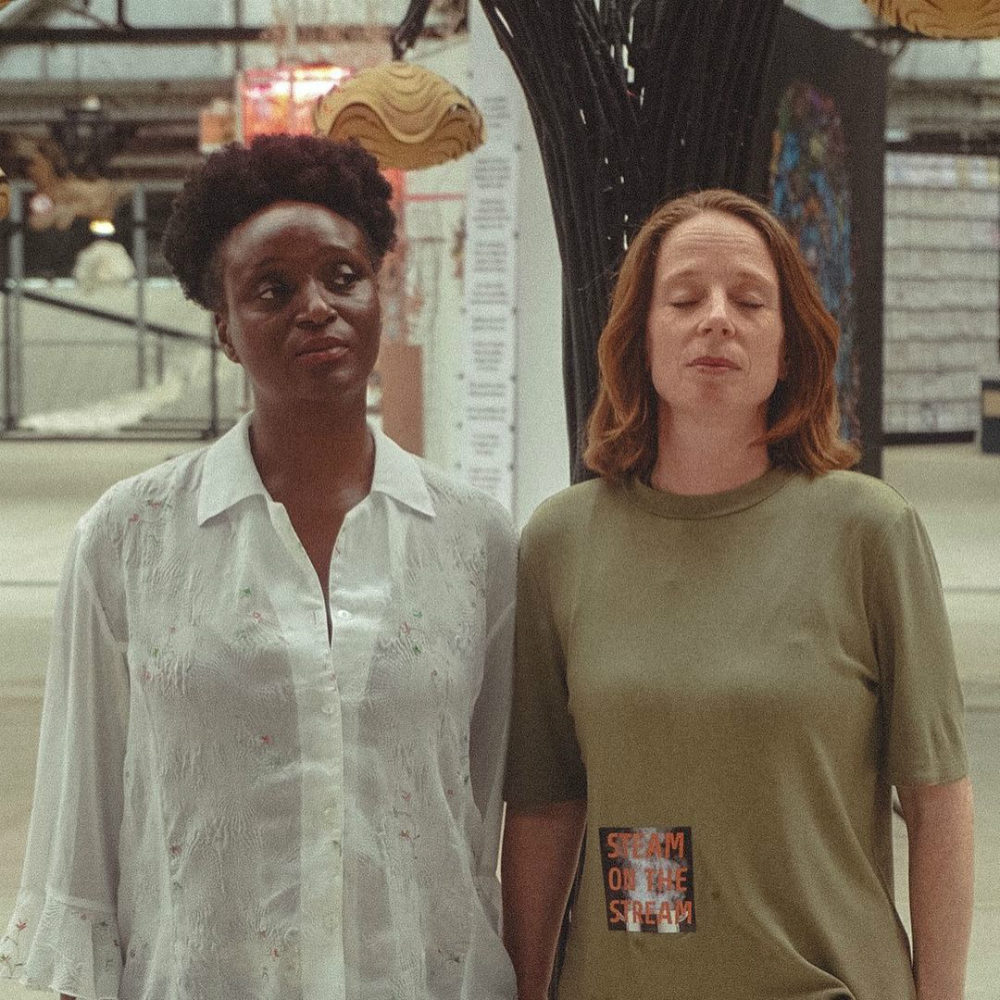
Launched in the midst of the pandemic, and as a response to the gap created by the end of Red Light Radio due to the loss of their studio in the iconic district of the same name, Echobox Radio is a young station in Amsterdam that has rapidly gained a following through its FM ethos, community mindset, hyper-diverse programming and extensive broadcasting times. “We knew how important such a platform is for a city, what it does on different levels – so we wanted to help in any form, when it became clear that it [Red Light Radio] was ending, we thought “why don’t we just start our own station?”, explains Mohamed Ghabri, one of its founders.
The team has taken a cue from traditional FM broadcasting and engages in a vertical-horizontal programming style; the program accompanies you along your day, with a deliberate spoken and digital chat exchange between the DJ and listener. “We want our residents to open up as presenters, we don’t want anonymity” says Ghabri. The diversity of shows appears as a reflection of what people want to hear as they go about their day. As such, you’ll find traditional music shows from renowned Amsterdam DJs but also ones like Radio Pleasure Society, that provides informative and educational discussions on different facets of sexuality, Talk That Science that invites scientists and students to explore exciting research topics, and Diaspora Radio, highlighting artists from West Asian and North African communities spread across the globe.
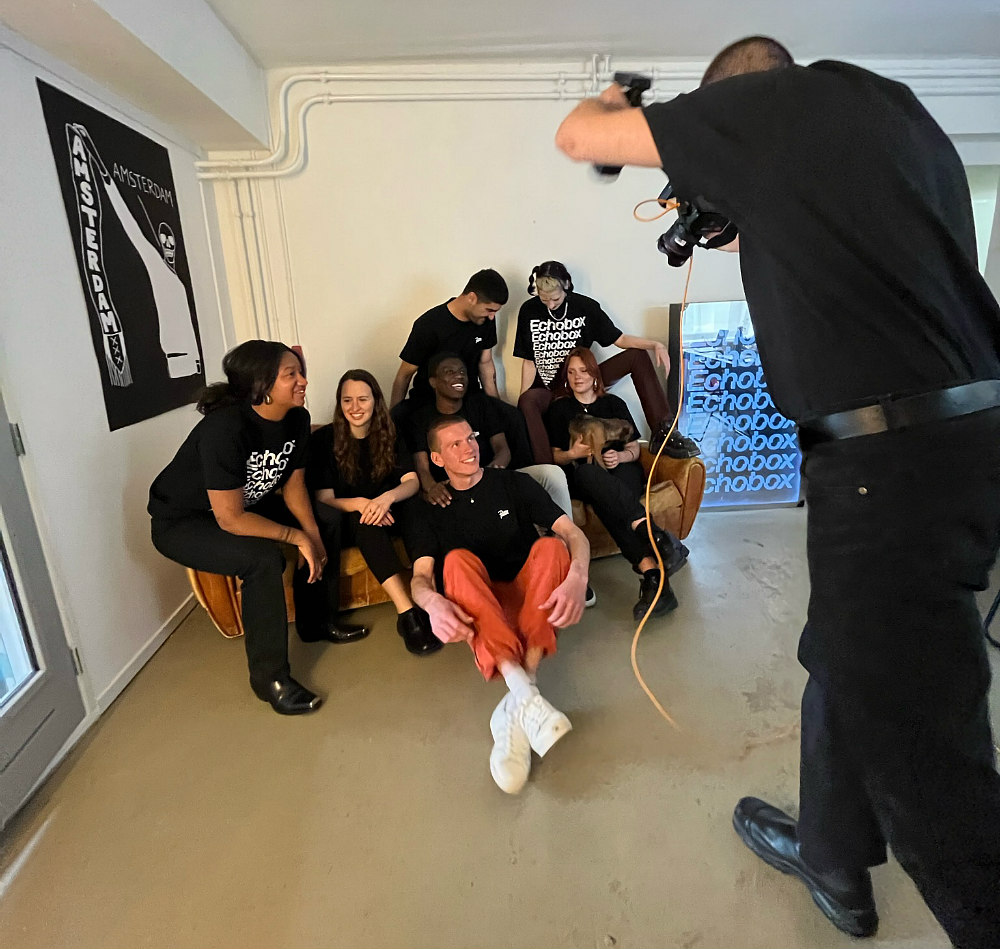
Echobox has also positioned itself as an incubator of sorts, being intentional about allowing anyone to pitch a show, creating a space for new radio-makers of all levels of experience and providing in-house guidance to constantly elevate and professionalise broadcasting quality. “We spoke with DJs, producers, and artists, asking what they were missing in radio right now, and a lot of the answers were about good communication and evaluation, and checking in on each other as a real community”. Ghabri is a firm believer that radio stations can also do better in their communities, “If we have just a DJ platform, it isn’t new. If we bridge many different worlds, key stakeholders won’t be able to ignore us.”
Not only in Amsterdam, this phenomenon has extended to other Dutch cities. Community radios even came together recently in an event in the northern city of Groningen, organised by Amsterdam’s Echobox Radio, The Hague’s Future Intel Radio, and Rotterdam based Operator Radio, illustrating the connectivity between creative scenes in cities across the country.
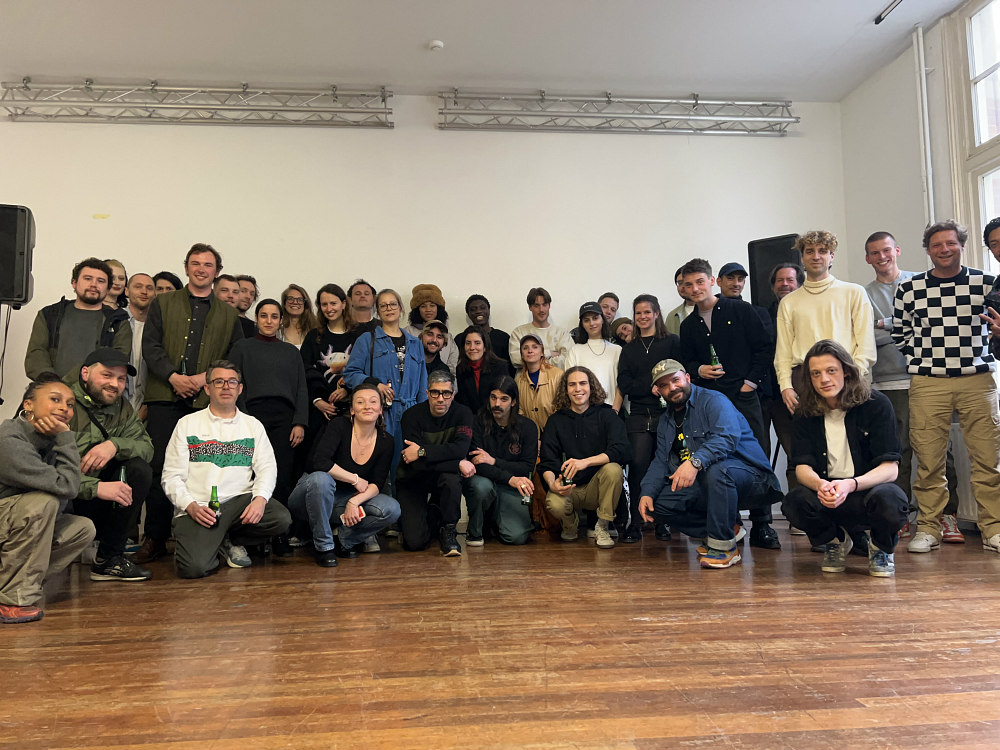
In the Hague, Future Intel radio launched at the beginning of 2020 shortly after the team gained access to a vacant, former telecommunications corporation office boardroom in The Hague. The first lockdown forced them to stop broadcasting after only 10 shows, but as restrictions were progressively lifted, access to a large space enabled them to ensure safe broadcasting, when other stations had to remain closed. Future Intel was able to provide a refuge for artists at a very challenging time. Co-founder Zamba-Jan Bakana reflects on the importance of the medium, “during the pandemic, we were able to see that a really big group of artists were suffering, not doing as much, not having a platform for output, and getting a little lost in themselves. That was a key motivation for us to keep pushing our platform. Through online radio, they were able to revive some of their creative output”.
If we have just a DJ platform, it isn’t new. If we bridge many different worlds, key stakeholders won’t be able to ignore us – Mohamed Ghabri
However, the occupation of the space became a contentious struggle with the city. In an unfortunate entanglement of bureaucratic slowness, and misunderstanding from city hall of the station’s contribution to the local culture, they were evicted in March 2022. Bakana explains, “We were in an anti-squatter building. We knew at some point we would have to leave. But people from city hall don’t often come by. They have certain ideas about dance music culture just being about partying. Our platform was specifically trying to break those stigmas.”
At a time when the housing crisis in the Netherlands was at the heart of political debates, as well as the way in which artists were being valued and supported during the pandemic, the situation at Future Intel appeared as a microcosm of the struggle against real estate interests and the need for greater recognition of local artist collectives and their contribution to urban vitality.
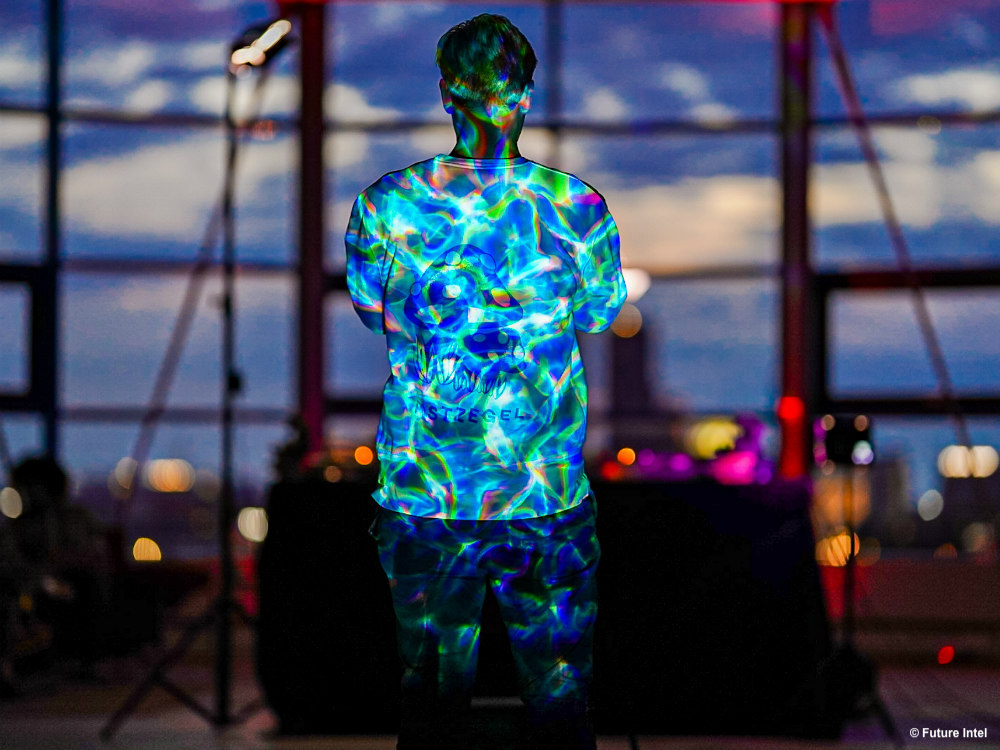
When Future Intel was fighting eviction, they asked artists, venues, and listeners to share words about why their work was important, and the response was enormous. “We realised how tight our community can be, especially in difficult times. We got so much love and comments, it was overwhelming!” Bakana exclaims, while speaking about the future of the station. The team is currently continuing to put on offline events while they look for a new studio space to resume broadcasting.
Keeping on top of the plethora of online community radio stations in the Netherlands and around the world is an impossible task, but speaking to a few of their founders already reveals their undeniable role in strengthening the social and cultural fabric of their respective cities. Understanding their collective impact calls for a broader conversation about what these platforms can provide for the city if their longevity is truly supported through greater recognition and funding.
“It’s not just the broadcasting, says Ulger, it’s everything around it actually: people coming together, and developing ideas.” If the right stakeholders come and see what they are doing, ”people will start to understand us as a vital part of the community.”
Here is a short selection of other independent online community radio stations in the Netherlands: JJa Ja Ja Nee Nee Nee (Amsterdam), Standed FM (Utrecht), Ra Ra Radio (Eindhoven), Maxi Radio (Leiden), Operator Radio (Rotterdam), Intergalactic FM (The Hague), Relate Radio (Groningen), Open Source Radio (Nijmegen).
